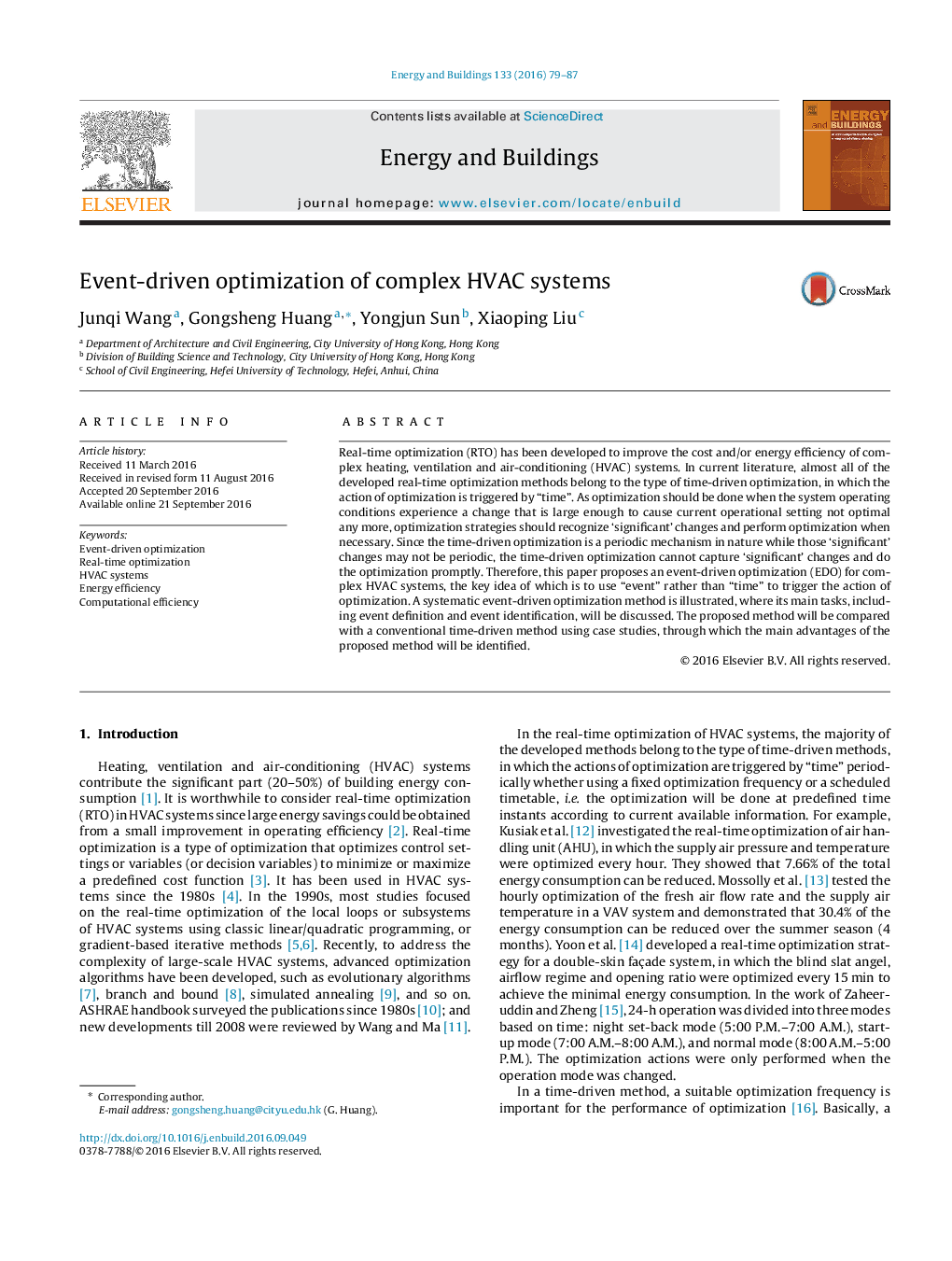| Article ID | Journal | Published Year | Pages | File Type |
|---|---|---|---|---|
| 4919494 | Energy and Buildings | 2016 | 9 Pages |
Abstract
Real-time optimization (RTO) has been developed to improve the cost and/or energy efficiency of complex heating, ventilation and air-conditioning (HVAC) systems. In current literature, almost all of the developed real-time optimization methods belong to the type of time-driven optimization, in which the action of optimization is triggered by “time”. As optimization should be done when the system operating conditions experience a change that is large enough to cause current operational setting not optimal any more, optimization strategies should recognize 'significant' changes and perform optimization when necessary. Since the time-driven optimization is a periodic mechanism in nature while those 'significant' changes may not be periodic, the time-driven optimization cannot capture 'significant' changes and do the optimization promptly. Therefore, this paper proposes an event-driven optimization (EDO) for complex HVAC systems, the key idea of which is to use “event” rather than “time” to trigger the action of optimization. A systematic event-driven optimization method is illustrated, where its main tasks, including event definition and event identification, will be discussed. The proposed method will be compared with a conventional time-driven method using case studies, through which the main advantages of the proposed method will be identified.
Related Topics
Physical Sciences and Engineering
Energy
Renewable Energy, Sustainability and the Environment
Authors
Junqi Wang, Gongsheng Huang, Yongjun Sun, Xiaoping Liu,
